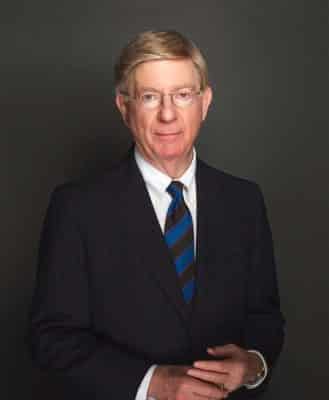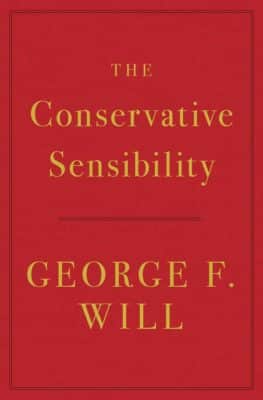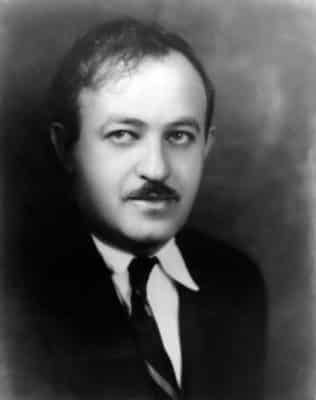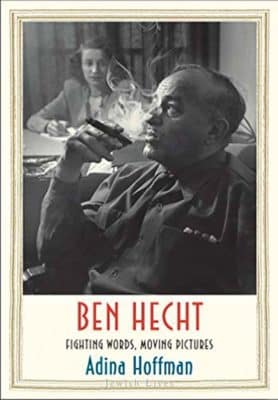
With The Conservative Sensibility, George F. Will delivers his summa theologia on what that once-promising movement should stand for. This long-winded tome touches on themes familiar to readers of Will’s decades-long-running column: culture, economics, education, foreign policy, plus an ongoing (and often embittered) interpretation of American history. Is George F. Will a conservative? Has he ever been one? Would a true conservative hold up former New York Senator Daniel P. Moynihan as a model? Will characterizes himself as Madisonian, as in James Madison.
“Little Jemmy” is the hero of this volume, the progressive Woodrow Wilson, who believed in an activist government and whose war-addled administration was a model for the New Deal, is the heavy.
 Is Will a conservative? The book, for me, comes apart in chapter four, where Will calls for the courts to “supervise” democracy. Say what? Justices are suppose to interpret the Constitution. That’s it. To buttress his case, Will turns to the 1954 Brown v. Board of Education decision as a prime example of necessary judicial activism. In that chapter, however, Will does not cite such offspring of that decision as 1968’s Green vs. Prince William County (school consolidation) or 1971’s Swann v. Mecklenburg County (school busing). The reviewer considered the oversight unacceptable, until reading that Will did touch upon these decisions in chapter six and finds them baneful. “[Soon] there was compulsory busing, which became one of the most costly failures…in the history of American social policy.”
Is Will a conservative? The book, for me, comes apart in chapter four, where Will calls for the courts to “supervise” democracy. Say what? Justices are suppose to interpret the Constitution. That’s it. To buttress his case, Will turns to the 1954 Brown v. Board of Education decision as a prime example of necessary judicial activism. In that chapter, however, Will does not cite such offspring of that decision as 1968’s Green vs. Prince William County (school consolidation) or 1971’s Swann v. Mecklenburg County (school busing). The reviewer considered the oversight unacceptable, until reading that Will did touch upon these decisions in chapter six and finds them baneful. “[Soon] there was compulsory busing, which became one of the most costly failures…in the history of American social policy.”
True, but an understatement. Such activism sent American public education into a decline that may take decades to overcome. Will also neglects Griggs v. Duke Power Co. (affirmative action), Roe v. Wade (abortion) and Hodges v. Obkerfell (marriage definition), decisions that have hurled once-pleasant America into a cultural war with no end in sight.
On page 535, Will finally gets to the point, calling on conservatives to “send more and more political power back to the state and local level.” Well, that’s conservative, all right. I am not convinced that Will believes in states’ rights.
His “judicial supervision of democracy” would likely to continue to nullify the Tenth amendment. Further, Will picks a fight with the late Antonin Scalia over the court’s duty. For Scalia, the U.S. Constitution was sacrosanct. Judges were not paid to philosophize. Their job was original intent. Will, incredibly enough, maintains that the Declaration of Independence should play a role in how judges decide. Will a conservative? Scalia is right. The Constitution—the Constitution only—is the nation’s governing document. For friends of the Constitution and even democracy itself, George Will is no ally.

Ben Hecht, the subject of Adina Hoffman’s new biography, Ben Hecht: Fighting Words, Moving Pictures, was a prolific screenwriter, who played a major role in shaping the entire movie industry in the United States. A native of Racine, WI,
Hecht originally sought his fortune in Chicago, a city that during the 1920s, was a hotbed of exciting literary activity. Hecht was a columnist for the Chicago Daily News. He also began publishing fiction. Hollywood beckoned. In the 1930s, studios began hiring well-known novelists such as F. Scott Fitzgerald, William Faulkner, Aldous Huxley and James Agee, to work on film treatments and scripts. Hollywood is where Hecht’s career took off. However, time spent in New York City, where his family first lived when they came to America, also had an impact on Hecht. He now had an identity as both an American and as a Jew.
Then came the 1940s. Hecht was living and working in Hollywood at the height of its Golden Age. But the man was terribly tormented by the unimaginable persecution his fellow Jews were facing in Europe. The biography vividly recreates those shocking years. It wasn’t until November 1942 that the U.S. State Department allowed information on the destruction of European Jewry to become news.
 When a leading American rabbi acknowledged that two million Jews had already perished, the story in both The Washington Post and The New York Times rated only a few paragraphs, not on page one, but buried in the first section near liquor ads. Hecht joined forces with the impresario Billy Rose to produce a 1942 memorial service, We Will Never Die, followed by a 1943 play, A Flag Is Born, rallying for the cause of the new state of Israel. Hecht stayed active, responding with anger, satire and great bitterness over the plight of his people. Hecht felt lonely and betrayed. After the war, his anger hardly subsided. In May 1947, he ran ads in the New York papers declaring his solidarity with “the terrorists of Palestine,” applauding violence against the British forces occupying then-Palestine. Naturally, the British government was incensed, and Hecht’s Hollywood was never the same. In the late 1950s, Hecht briefly hosted an iconoclastic television show on WABC-TV, which also became too controversial for his latest employer. By the time Hecht died in 1964, the state of Israel was well-established. Hecht was a proud American and he preferred to be buried in Upstate New York rather than in Israel. Hoffman’s biography is a supple and dramatic rendering of a troubled soul.
When a leading American rabbi acknowledged that two million Jews had already perished, the story in both The Washington Post and The New York Times rated only a few paragraphs, not on page one, but buried in the first section near liquor ads. Hecht joined forces with the impresario Billy Rose to produce a 1942 memorial service, We Will Never Die, followed by a 1943 play, A Flag Is Born, rallying for the cause of the new state of Israel. Hecht stayed active, responding with anger, satire and great bitterness over the plight of his people. Hecht felt lonely and betrayed. After the war, his anger hardly subsided. In May 1947, he ran ads in the New York papers declaring his solidarity with “the terrorists of Palestine,” applauding violence against the British forces occupying then-Palestine. Naturally, the British government was incensed, and Hecht’s Hollywood was never the same. In the late 1950s, Hecht briefly hosted an iconoclastic television show on WABC-TV, which also became too controversial for his latest employer. By the time Hecht died in 1964, the state of Israel was well-established. Hecht was a proud American and he preferred to be buried in Upstate New York rather than in Israel. Hoffman’s biography is a supple and dramatic rendering of a troubled soul.


















